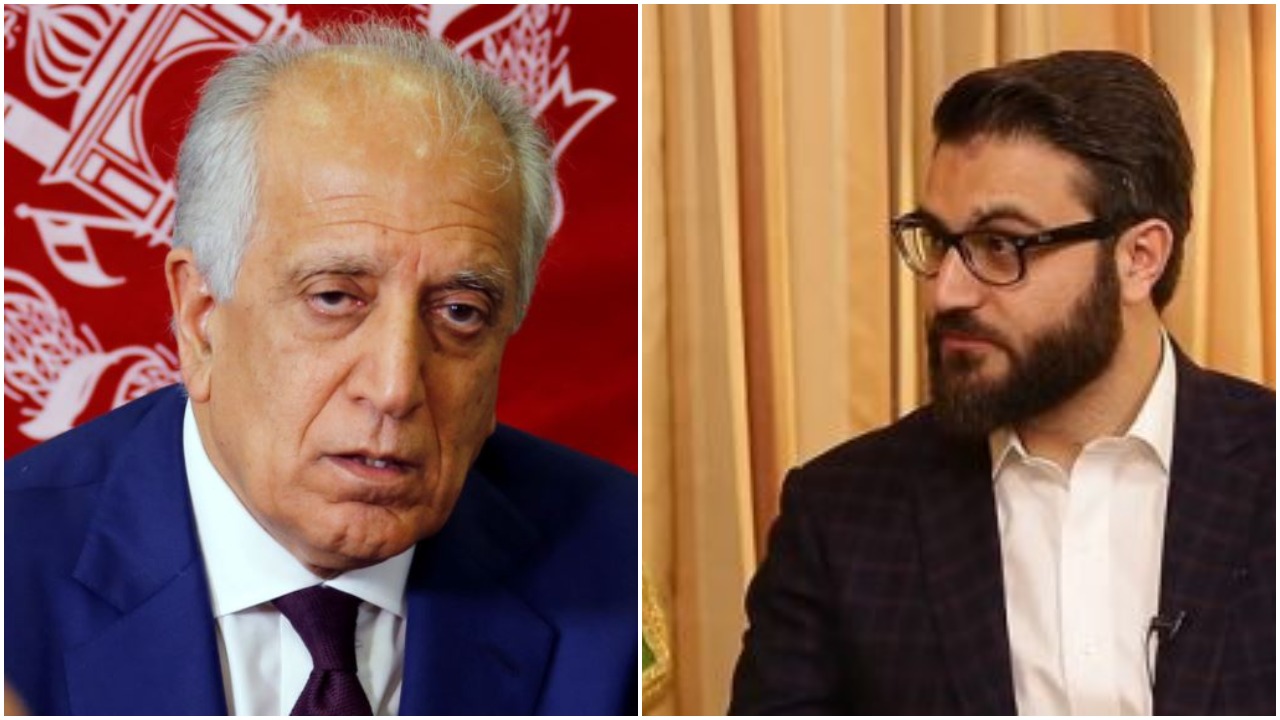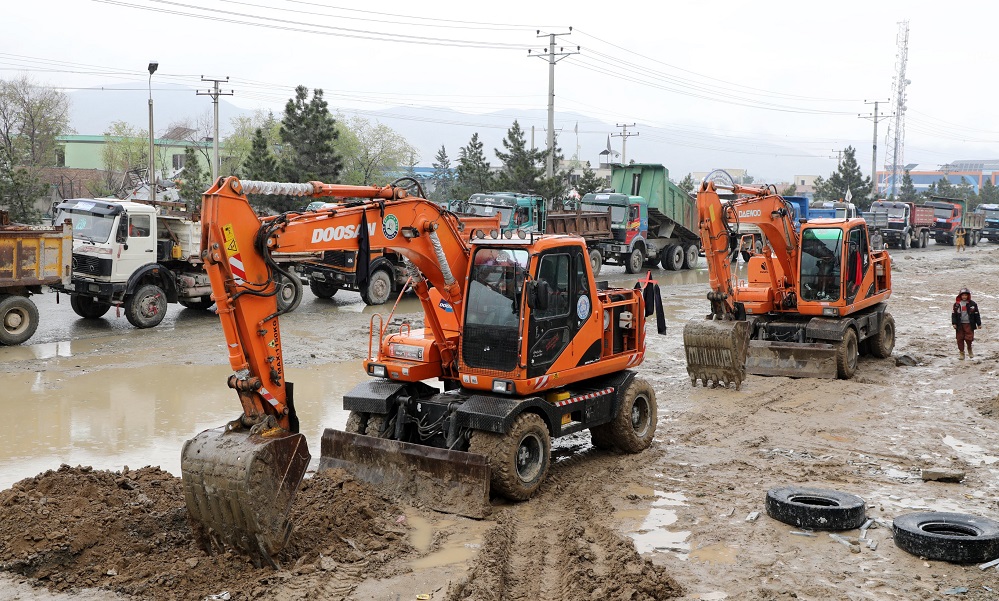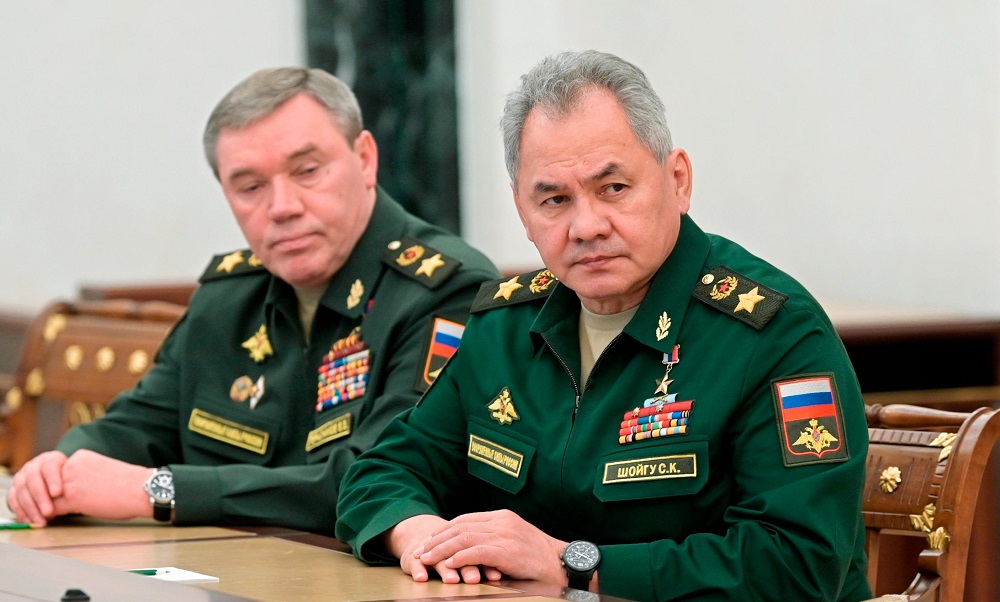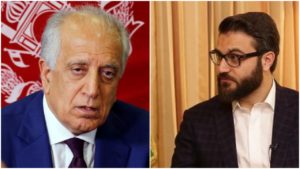Latest News
In Unusual Move, U.S. Summons Visiting Afghan NSA Mohib

He said that Khalilzad is keeping the “duly elected” Afghan government in dark and that in the latest round of talks in Doha, they were humiliated and made to wait in a hotel lobby.
“We don’t know what’s going on. We don’t have the kind of transparency that we should have,” Mohib told reporters at a news conference on Thursday.
He said the Afghan government was getting the information in bits and pieces.
“The last people to find out (about the peace talks) are us,” Mohib added.
Palladino also said that the U.S. was displeased with Mohib’s comments.
Also expressing his displeasure was U.S. National Security Advisor John Bolton, who reportedly refused to meet Mohib.
Husain Haqqani, a former Pakistani ambassador to the U.S., who is now at the Hudson Institute think-tank, criticized the State Department for such a treatment to Mohib.
“Such arrogance! Not expected of U.S. diplomats. More suited to the erstwhile Soviet Union or China,” Haqqani tweeted. “Support for Afghan peace could have been asserted without such language.”
Mohib said while the democratically elected Afghan government has been kept out of the peace talks, Islamabad was well aware of the developments happening at the talks in Doha.
“The patron (Pakistan foreign minister) tweets and says there was progress in Doha. Were they there? What is the relationship of the Taliban with Pakistan? I have to say it, spell it out,” he said.
“What is the relationship (between the Taliban and Pakistan)? Has anybody asked and what does it mean? What will be the end of that relationship? Will peace in Afghanistan mean Pakistan no longer using proxies for their political objectives and terrorists. Will the UN raise that question of what the policy or non-state actors?” asked Mohib.
“There will be no peace unless Pakistan stops supporting “non-state actors”, Mohib said.
“Imagine these discussions were successful. What would be Pakistan’s objective? What would it be for the Pakistani military? What would be the incentives for them? The incentive for them is they’ve just defeated the United States [and] all of its coalition partners,” he said.
“It (Pakistan) has the incentive to continue to sponsor and support its policy of Islamic extremist. That is the best weapon they have, and they will continue to use it at the cost of all Muslims,” Mohib said. “If we don’t hold Pakistan responsible for the use of their non-state actors and terrorists here, you will not be able to hold them back anywhere else.”
It comes as the fifth round of U.S.-Taliban talks which lasted 16 days, ended on Monday in Doha, Qatar. The sides reported progress, but no final deal on withdrawal of U.S.-led international forces and arrangements that the Taliban ensures militants would not use Afghanistan to stage attacks against the U.S. and its allies.

Latest News
Three road construction projects launched in Kabul

Three road construction projects worth about one billion Afghanis started in capital Kabul on Saturday.
The projects were inaugurated by Deputy Prime Minister for Economic Affairs Mullah Abdul Ghani Baradar.
The projects are: the second phase of Kotal Khairkhane road, the first part of the Shahid square to Qasaba, and the Airport road to Gumruk.
In the inauguration ceremony, Mullah Baradar said that Kabul municipality is working hard to beautify and regulate the city, and people should cooperate with the government in protecting public benefit projects.
He directed the officials of Kabul municipality to complete the mentioned projects on time and with good quality.
The second phase of Kotel Khairkhaneh road is 2.5 kilometers long and 60 meters wide. Thie road will cost 364 million Afghanis and will be completed in 20 months.
The Shahid square-Qasaba road is 1.8 kilometers long and 45 meters wide, which will be built at a cost of 175 million Afghanis in one year.
The Airport-Gumruk road is 2.7 km long and 60 meters wide, which will be completed at a cost of 407 million Afghanis in 20 months.
The projects are funded by Kabul Municipality.
Latest News
Russian defense minister says main threat for SCO countries emanates from Afghanistan

Russian Defense Minister Sergey Shoygu said on Friday that the main threat for the Shanghai Cooperation Organization (SCO) members emanates from Afghanistan where international terrorist groups find shelter due to unstable and indefinite political situation.
Speaking at a meeting of the SCO defense ministers in Kazakhstan’s capital Astana, Shoygu said Washington has stepped up efforts to restore its positions in Central and South Asia that were lost after the withdrawal of coalition troops from Afghanistan, Anadolu Agency reported.
The military chief called “unacceptable” the deployment of the American military infrastructure in the region, arguing that intentions should be regarded as “a direct threat to stability in the SCO space.”
According to him, the US is trying to impose a new security system in the Asia-Pacific region for dominance.
This comes as the Islamic Emirate has repeatedly emphasized that it does not allow anyone to pose threats to any other country from Afghanistan soil.
Recently, Mohammad Yaqub Mujahid, Acting Minister of National Defense Mohammad Yaqub Mujahid said that no destructive groups including Daesh have physical presence in Afghanistan,
Latest News
IEA calls Mujahideen Victory Day ‘freedom day’

In a statement on the occasion of the 32nd anniversary of the victory of the Mujahideen against the then communist government, the Islamic Emirate said that it is a day of freedom of the Afghan nation.
The Islamic Emirate described the coup by People’s Democratic Party of Afghanistan on 27th April 1978 as a dark day in history, as a result of which the people of Afghanistan suffered severe human and financial losses.
The statement said that the Afghan nation suffered huge casualties in their 14-year struggle against the thoughts and actions of the communists, as 1.5 million people died and millions more faced various hardships.
“After 20 years of Jihad, our country was freed from another occupation and the Islamic system was established, so the Islamic Emirate will make its utmost efforts so that the fruits of decades of sacrifice and struggle of this nation are not wasted,” the statement said.
“It was the wish of the martyrs to fully implement the Islamic system in the country, and therefore, the Islamic Emirate is trying to facilitate development and prosperity under the shadow of the Islamic system in order to realize the goals of the Afghan people’s jihads,” it added.
-

 Latest News4 days ago
Latest News4 days agoRashid Khan named AWCC’s brand ambassador
-

 World5 days ago
World5 days agoMalaysian navy helicopters collide in mid-air, 10 killed
-

 Sport4 days ago
Sport4 days agoJaiswal ton powers Rajasthan to big IPL win
-

 World4 days ago
World4 days agoNorth Korea officials visit Iran in a rare public trip
-

 Latest News5 days ago
Latest News5 days agoAt least 1,500 families affected by recent floods: IRW
-

 Sport5 days ago
Sport5 days agoMawj Sahil player scores stunning halfway line goal in 1-0 win over Jawanan Wahedi
-

 Sport4 days ago
Sport4 days ago‘Serious talent’ Fraser-McGurk bonds with Warner to light up IPL
-

 Latest News5 days ago
Latest News5 days agoUS report cites ‘significant deterioration’ in Afghan women’s rights last year















